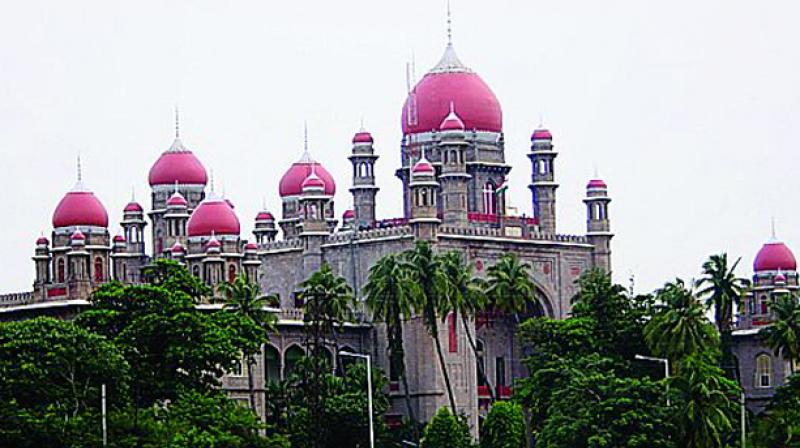Cases pile up as Andhra Pradesh, Telangana await litigation policy

Hyderabad: The failure of the state governments of AP and Telangana in evolving a ‘State Litigation Policy’ along the lines of the National Litigation Policy (NLP) has resulted in the piling up of cases in the Hyderabad High Court.
The Centre, after recognising the fact that the government and its various agencies are the predominant litigants in courts and tribunals, formulated a policy to bring down the litigation from government agencies by making them more responsible in filing cases.
All the state governments had been asked to evolve a ‘State Litigation Policy' along the lines of the National Litigation Policy. This was announced in October 2009, to reduce government litigation in courts so that valuable court time would be spent in resolving other cases.
The NLP aims at reducing trivial litigations in which the government is a party. It also wants to reduce the burden of the judicial system, which currently has to deal wi-th a large number of cases.
The NLP deals with government representation, adjournments, plea-dings and filing of counter affidavits as and when the court requires the stand of the government on petitions coming before it and also review of the pending cases.
The Hyderabad High Court on April 29, 2014 before bifurcation of the state, had directed the then government to evolve the Litigation Policy within six months while dealing with a matter pertaining to the Greater Hyderabad Municipal Corporation.
Pointing out the laxity on the part of law officers of the court (government pleaders, standing counsels), the High Court observed that the government and its institutions represent public interest and any laxity on the part of either its officers or their counsel would affect such public interest.
The HC also observed that “If any court of justice is allowing the claim of other parties due to laxity of the government or its law officer, it would be doing injustice to the public at large and such a situation should not prevail. Summoning the officers for their lapses is not the remedy for the above situation. it will only disrupt their work. In the justice delivery system, not only the judge, but also counsel who is appearing in the court, has an equal role to play in rendering justice.”
The Constitutional courts across the country and even the Apex Court time and again have been pointing out about the lack of motivation in bureaucracy to tackle the issue of pendency of cases in the court and responding towards the courts in providing necessary facts as sought by the courts to dispose of cases.
The Prime Minister himself, in the year 2015 in the judicial officers’ conference, acknowledged that the bureaucracy was not sufficiently motivated to tackle the issue.
The Law Commission of India in its 126th Report in 1988 pointed out that government litigation has contributed to judicial backlog, thus affecting justice delivery in India.
Order Order
Hyderabad High Court says that in a case between two individuals, an individual can be set ‘ex parte’ in the absence of one of the parties, but there cannot be a situation where one of the parties in government or its institution has to invariably depend on law officers.
The Hyderabad High Court had directed the Chief Secretary of erstwhile AP government to prepare a scheme for computerisation of the cases of the government and its institutions in various courts in the state and their monitoring.
The NLP defined that a responsible litigant was one who does not litigate just for the sake of it and does not make false pleas or technical points.
The NLP lays emphasis for prioritisation on welfare legislation, social reforms and helping weaker sections of society as well as senior citizens.

